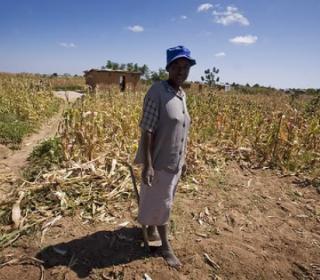SARIPS is a semi-autonomous technical arm of the SAPES TRUST that was established in 1998 to undertake research, training and policy dialogue. The SAPES Trust, which started as a project of the African Association of Political Science (AAPS) was registered as a non-governmental, non-profit making body dedicated to nurture and promote indigenous capacity in the social sciences in 1987.
The principal objective of SARIPS was to advance a policy making process in which the SARIPS and other institutions of civil society can creatively contribute towards the emergence of peace and democracy in the Southern African region and society on an equitable and sustainable socio-economic development path.
Members:
Resources
Displaying 1 - 5 of 5How Land Reform Can Contribute to Economic Growth and Poverty Reduction: Empirical Evidence from International and Zimbabwean Experience
Examines international evidence on the relationship between asset ownership and growth and the impact of redistributive land reform, plus evidence of the impact of land reform in Zimbabwe. Asks why it appears that resettled farmers are among the poorest in the population. Concludes that asset redistribution can be a viable strategy to enhance growth, that the performance of resettled farmers in Zimbabwe is better than is conventionally believed, and that if a land reform programme is well designed, it can have a large impact on equity as well as productivity.
The land question and land reform in Southern Africa
This paper discusses the nature of the land problem in the region and tries to situate the general land reform process in Zimbabwe within a regional context.It examines the four key land problems facing the region the discriminatory and insecure forms of land tenure that are found among variouslandownership regimes the increasingly imbalanced landownership structures and factors underlying itthe contradictory tendencies towards irrational land-use patterns through both the over utilisation and underutilisation of land the devotion of most prime lands and resources to production for externa
The political economy of land acquisition and redistribution in Zimbabwe, 1990-1999
Paper systematically evaluates the political economy of Zimbabwe's emerging land policy in the 1990s in the context of other land reform programmes in Southern Africa.
The land question and land reform in Southern Africa
This paper discusses the nature of the land problem in the region and tries to situate the general land reform process in Zimbabwe within a regional context.It examines the four key land problems facing the region the discriminatory and insecure forms of land tenure that are found among variouslandownership regimes the increasingly imbalanced landownership structures and factors underlying itthe contradictory tendencies towards irrational land-use patterns through both the over utilisation and underutilisation of land the devotion of most prime lands and resources to production for externa
The political economy of land acquisition and redistribution in Zimbabwe, 1990-1999
Paper systematically evaluates the political economy of Zimbabwe's emerging land policy in the 1990s in the context of other land reform programmes in Southern Africa.





